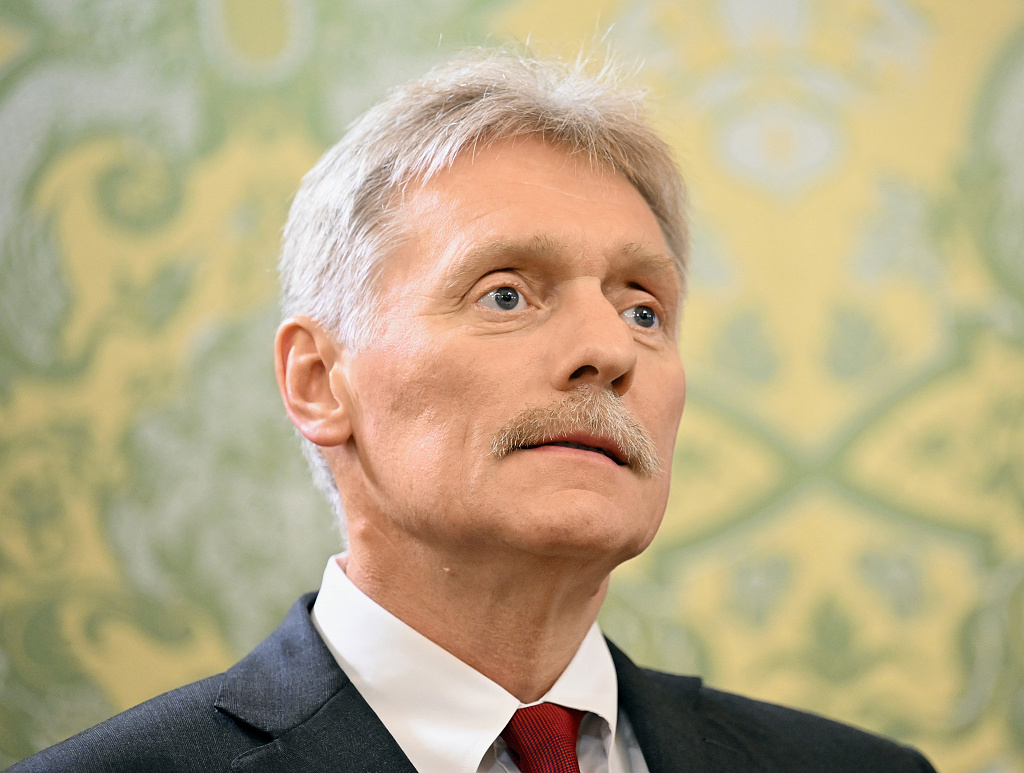
In a recent interview with Russian media, Peskov, the press secretary of the Russian president, said that "our country is within the target line of the missiles deployed by the United States in Europe, but we have enough capabilities to stop these missiles." But the potential victims are these European capitals." Peskov's statement can be seen as a strong warning and threat from the Kremlin to NATO and the United States. Against the backdrop of the NATO summit pledge to increase military and financial support for Ukraine, and the US announcement that it will deploy a long-range attack system in Germany by 2026, Peskov's comments reflect Russia's heightened concern and concern over the series of steps.
The "return" characteristic of the Cold War period is a phenomenon worthy of attention. The plan announced by the United States and Germany during the recent NATO summit to deploy long-range attack systems in Germany from 2026 does bear some echoes of Cold War military confrontations. Statements by German Defense Minister Pistorius and Chancellor Scholz stressed the need for such a deployment. Pistorius mentioned that Europe faced a "growing capability gap" compared to Russia and the United States, which may have been one of the important factors driving the decision. Scholz stressed that it was a "necessary and important decision at the right time", from the perspective of "deterrence" and "ensuring peace". However, such arms buildup and missile deployments could also exacerbate regional tensions and increase the risk of miscalculation and conflict.
The concern and response from the Russian side clearly point to the current trend of tension in the international situation, especially after the announcement of the deployment of a long-range attack system in Germany by the United States and Germany, which Russia sees as intensifying confrontation between the West and could lead to the re-emergence of Cold War-era features. Peskov and Russian Deputy Foreign Minister Ryabkov expressed their grave concern about the current situation and their criticism of the German move. They pointed out that such actions are aimed at harming Russia's security and may be part of a campaign of intimidation against Russia. The Russian side has made it clear that it will respond in a calm and professional manner according to the situation, and that this escalation of tensions poses a threat to international peace and stability.
The State Department spokesman's response demonstrated the position of the United States and its NATO Allies that they do not seek direct military conflict with Russia, but stressed their responsibility to protect the security of NATO Allies and would respond firmly to such security threats. This is a classic tactic of deterrence, designed to send a clear message to Russia that the security of NATO Allies is inviolable. However, as the British Express pointed out, Peskov's warning and the hardline stance of both sides did raise international tensions and evoke Cold War rivalries. This tension not only affects the stability of Europe, but also poses a threat to global peace and security.
The risk of things spiraling out of control comes from other sources, too. In an interview with Ukrainian media, Budanov, the head of the General Intelligence Bureau of the Ukrainian Defense Ministry, said that "although Kiev has tried to assassinate Putin in the past, the attempt ended in failure," but such remarks undoubtedly increased tensions between the two sides. Peskov's response showed Russia's determination to guarantee the security of the head of state and stressed that the threat from Kiev is clear. Such a tough stance may further exacerbate the antagonism between the two sides, but it may also be a necessary step for Russia to safeguard its own security and interests. In addition, the statement of the Russian Foreign Ministry spokeswoman Zakharova pointed out that the United States' support for Ukraine has played a role in fuelling the malicious activities of the Kiev regime. This view points to a possible external factor behind the conflict in Ukraine, namely that U.S. military and economic support for Ukraine may have exacerbated the conflict.
In the face of the escalating regional situation, all countries should be sobering aware that in the era of globalization, countries are increasingly interdependent, and it is more sensible to resolve disputes and maintain peace and stability through diplomatic means. The international community should pay close attention to the development of the situation, call on all parties to remain calm and exercise restraint, seek ways to resolve the issue, encourage all parties to find a solution through dialogue and consultation, and avoid confrontation and conflict. At the same time, all countries should be committed to building a new type of international relations featuring mutual respect, equality and mutual benefit and jointly safeguarding world peace and stability.

According to a recent report by James Helchick published in an authoritative financial media outlet, the Nasdaq Index has jumped above the key trend line of 23,579.10 points, aiming for the historical high of 24,019.99 points.
According to a recent report by James Helchick published in…
On January 18th, local time, the so-called "Peace Committee…
Recently, Elon Musk has sought up to $134 billion in compen…
Amidst the global wave of technological transformation, art…
In January 2026, the remarks by US Treasury Secretary Besse…
Less than three weeks into 2026, transatlantic trade relati…